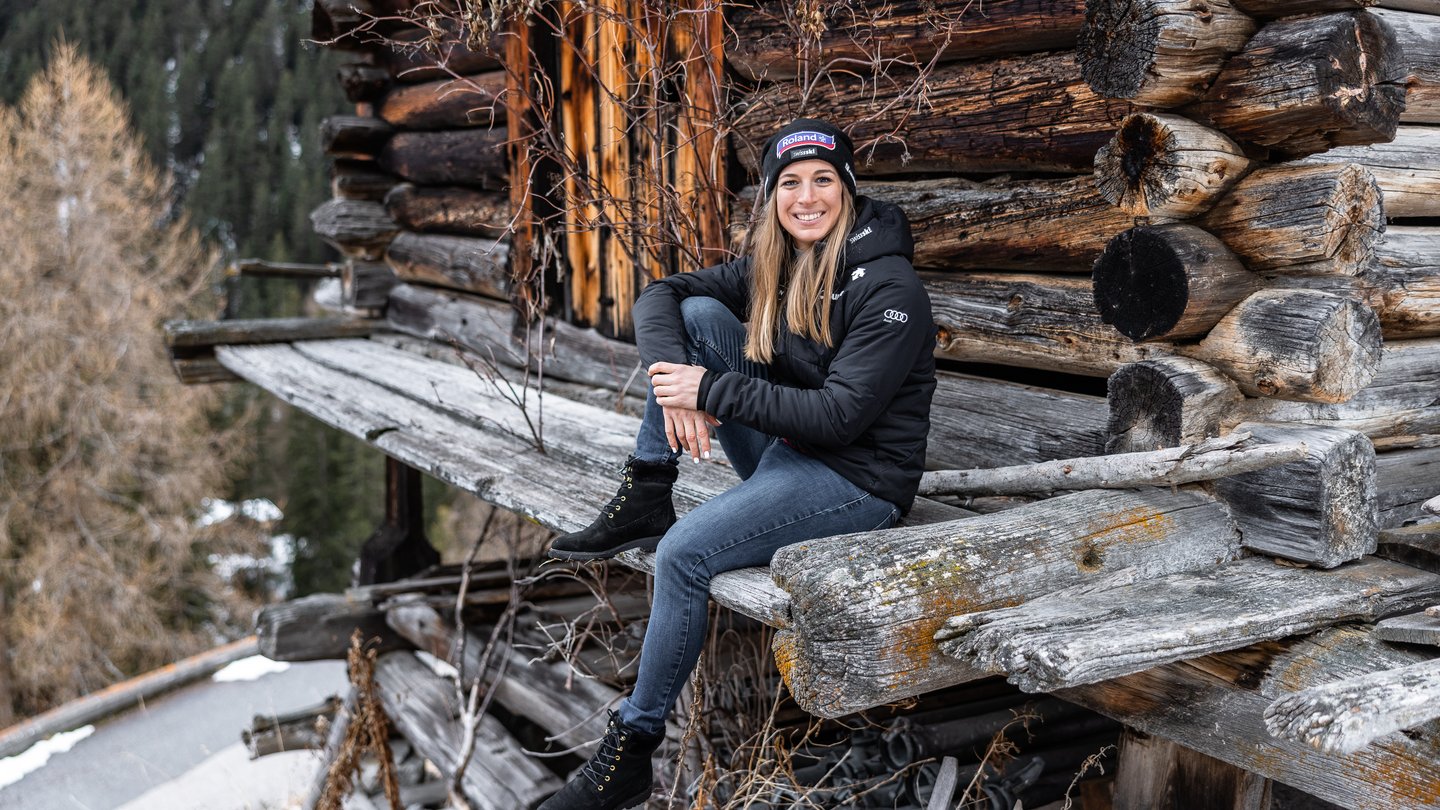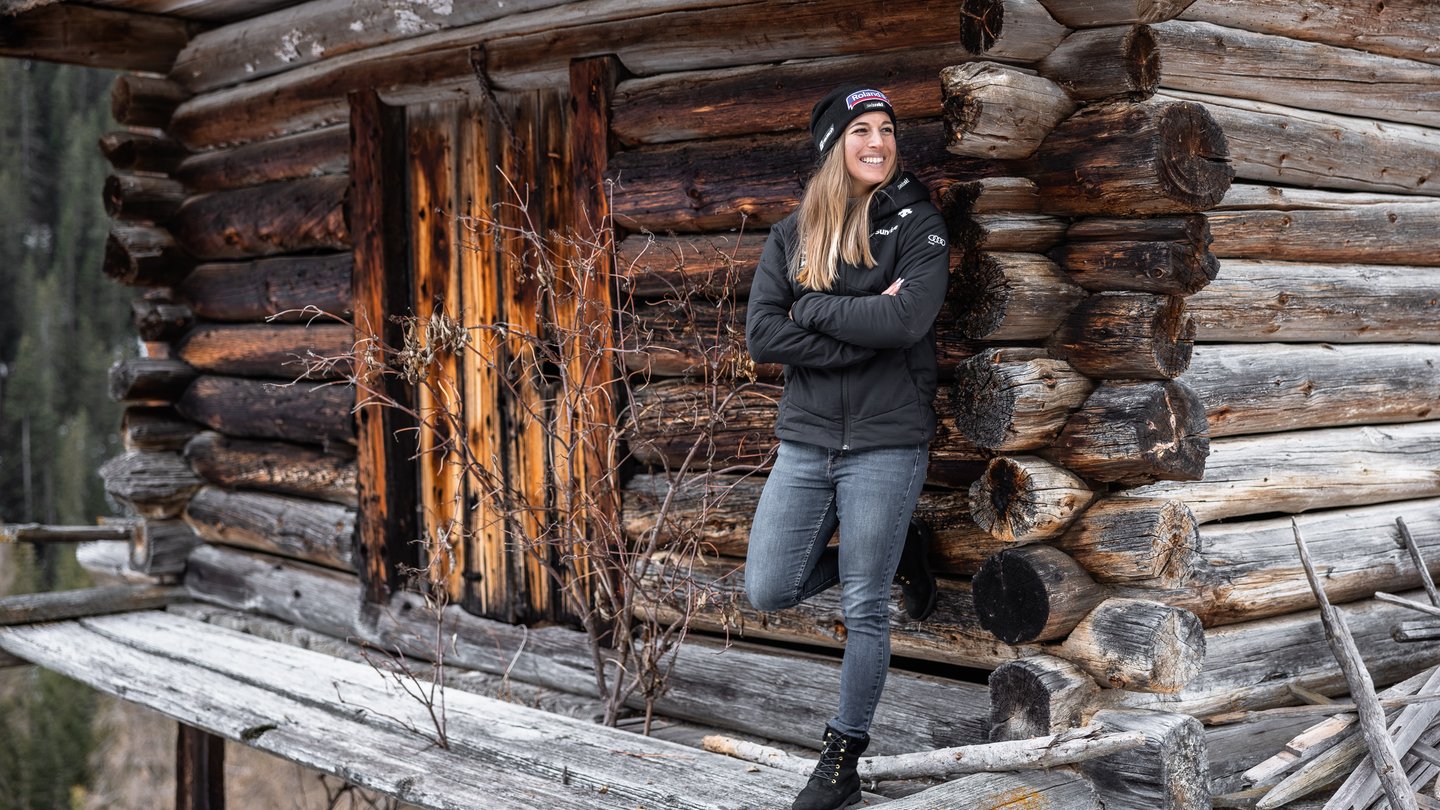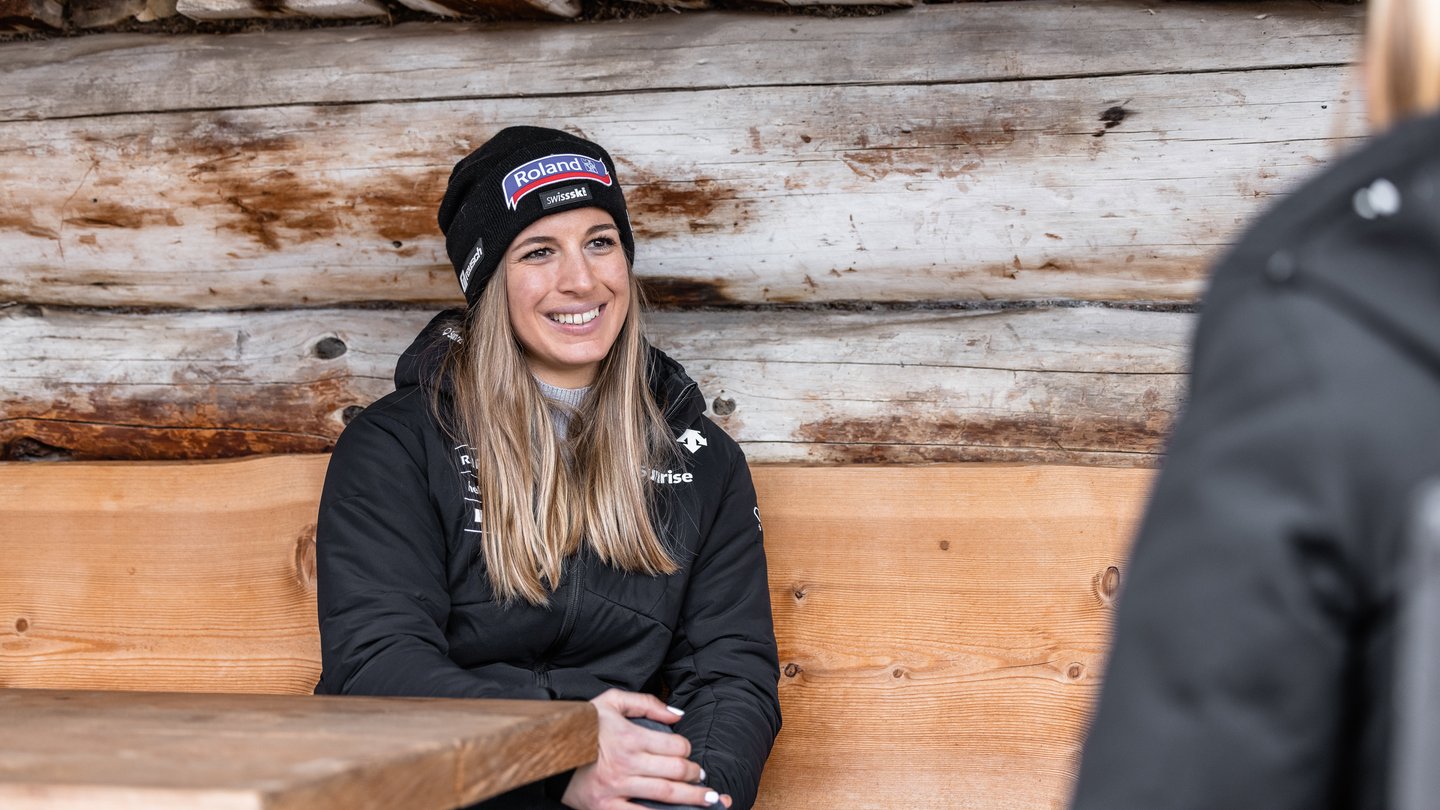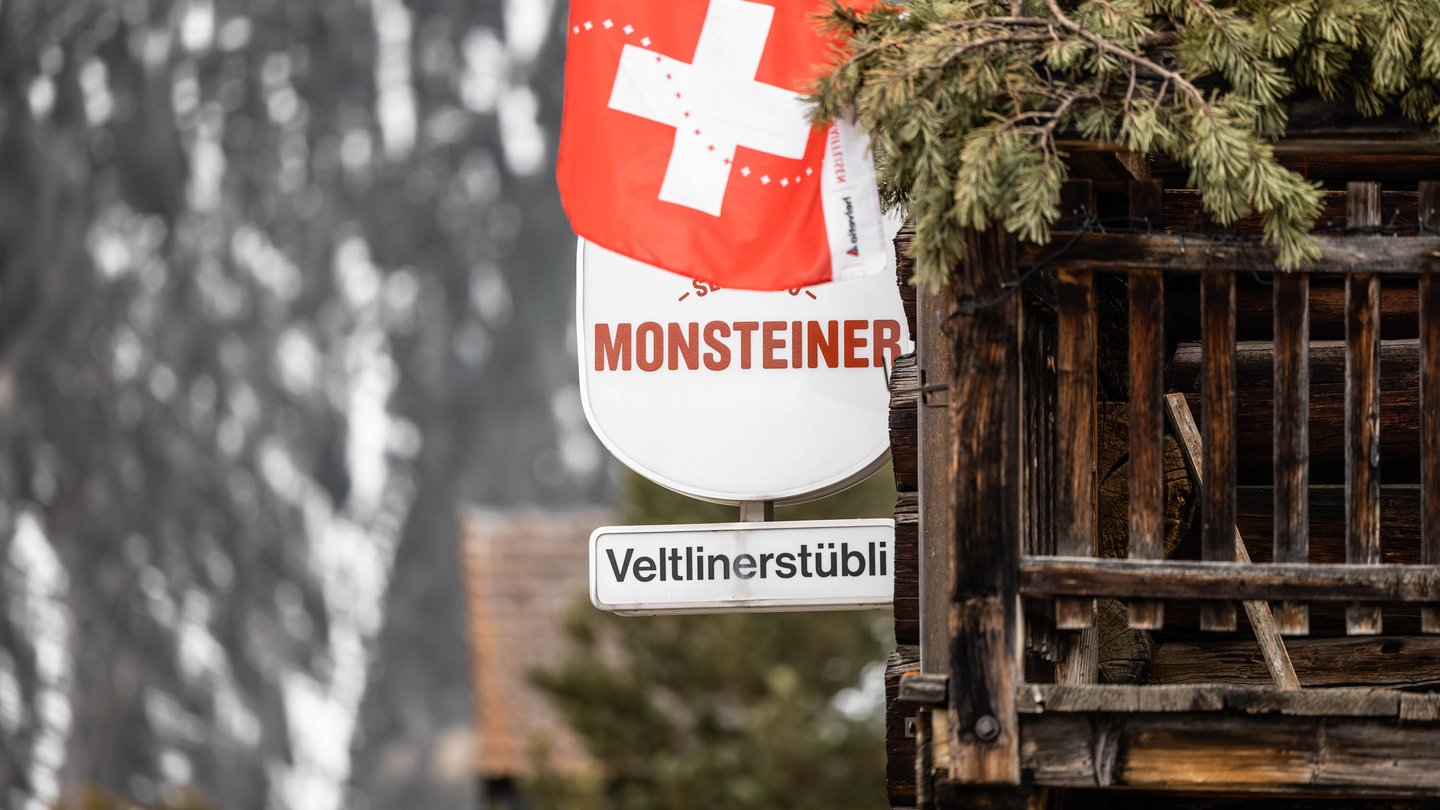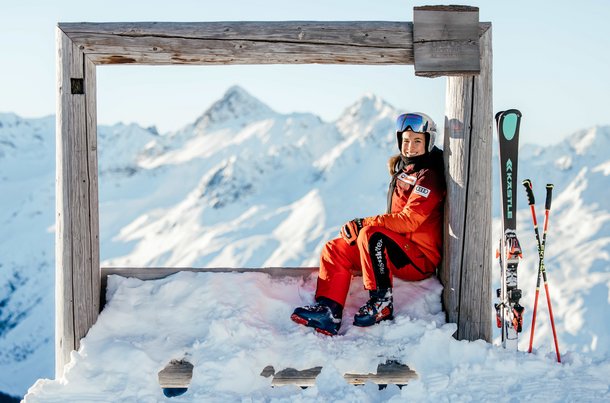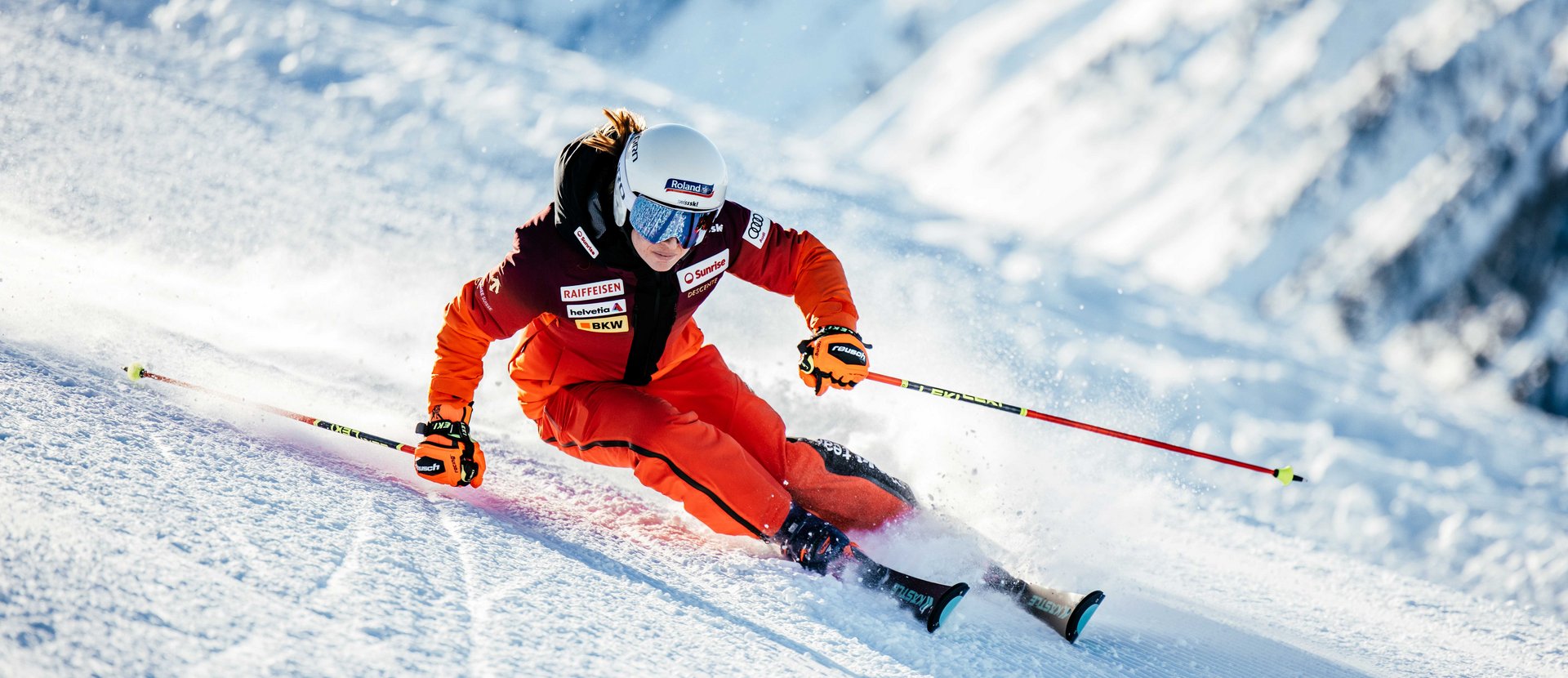
Jasmine Flury
Our ski ambassador
Find out more
All or nothing: Jasmine Flury would go all in – all over again
Jasmine Flury is a world champion downhill skier. Her path to the top was paved with difficulty. Here’s the story of our ski ambassador from Davos-Monstein, who never gave up, in spite of every setback.
They stand at the starting line. When the skiers in this supreme discipline plunge into the deep, the goal is clear. Pick up the pace, stick to their ideal line and make as few mistakes as possible. No hesitation. No doubt. Hold the line, even as muscles burn. In the women’s Ski World Cup, a number of descents lead through steep passages where the athletes accelerate to over 130 kilometres per hour a few seconds after the start. Passing striking rock formations – such as those in the Tofana-Schuss in Cortina d’Ampezzo. To jumps spanning over 40 metres. Pushing bodies and equipment to their limit. What sounds to most people like a test of nerve is just part of Davos-Monstein native Jasmine Flury’s job description. ‘A voice in my head quickly convinced me “yes, I can do this”. But it took a long time until it became the deepest conviction,’ says the downhill world champion and ski ambassador for Destination Davos Klosters.
‘I wore myself down’
For Flury, the path to the top has been paved with difficulty. In the 2016 season, a hip injury ruled her out of every single race. Even the triumphs have their dark side. ‘After my first World Cup win in St. Moritz in 2017, I put myself under pressure. It almost broke me; I wore myself down,’ says Flury. She felt she had to confirm this success and prove herself. ‘I definitely learned a lot from it,’ she adds.
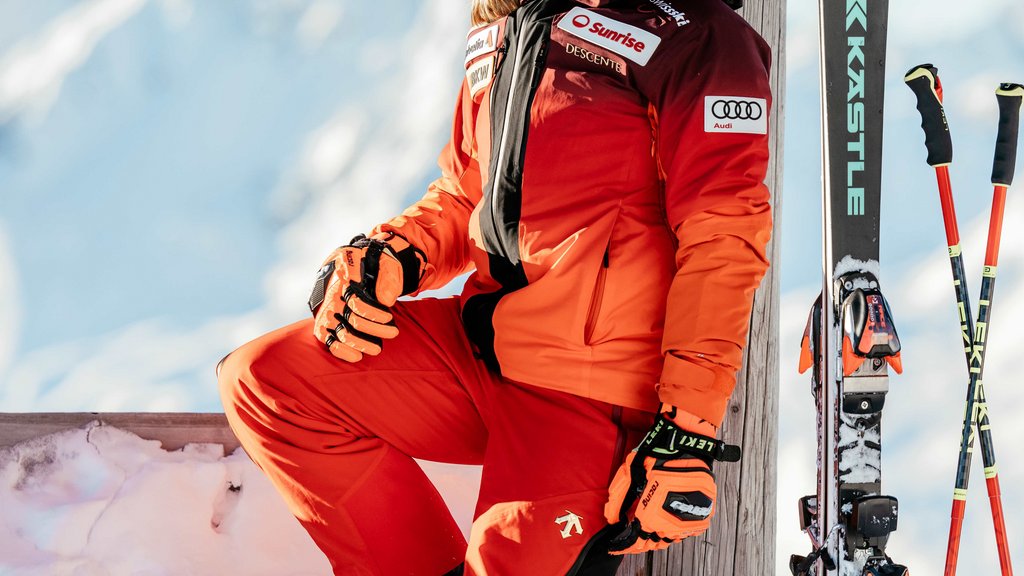
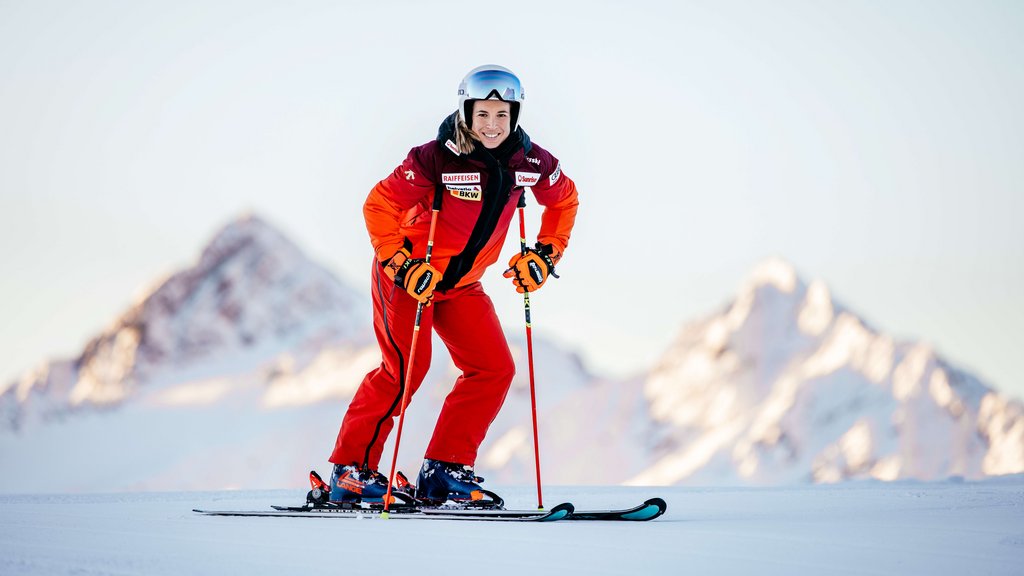
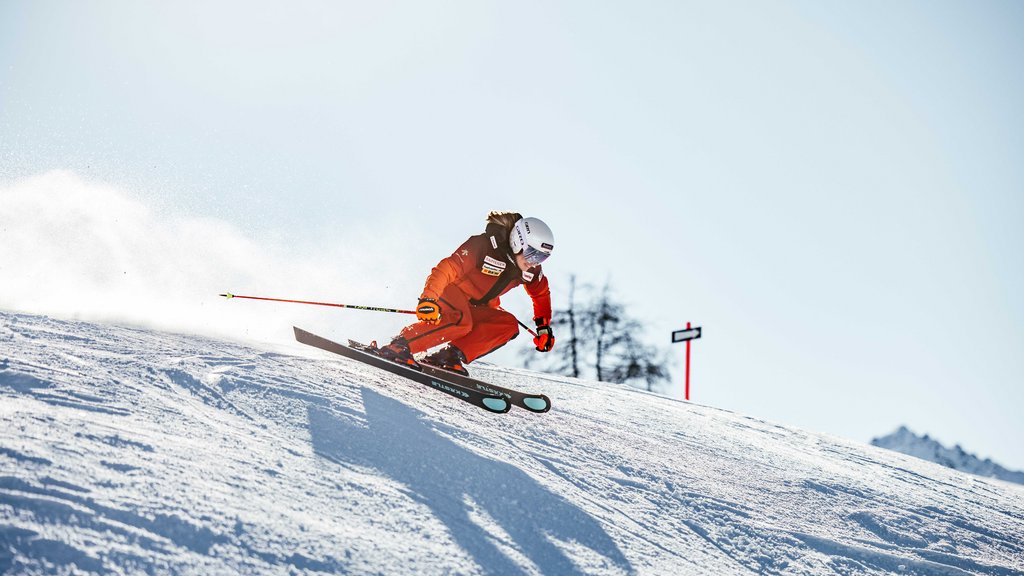
It all began on Rinerhorn
At the very top of international sport, victory is decided by fine margins. At the same time, it is an equation with many unknowns in terms of where the hundredth degrees that make up success come from – or where they are missing. From the good times to the bad, it all began at the Rinerhorn ski area at Destination Davos Klosters. Jasmine Flury took to her skis for the first time aged just three. She herself can’t remember that moment, but according to both her older sisters, who she sought to emulate on the piste, Flury was immediately transfixed. The memory of her first race aged three has faded, too. ‘Dad, where should I stop – the restaurant or the valley station?’ she’s said to have asked at the start.
The world champion from Davos Monstein
Flury grew up a stone’s throw from Rinerhorn, in the little village of Monstein with a population of just 200. She spent her childhood on a farm, with all that entails: dairy cows, chickens and Alpine pigs. Monstein is a Walser village – a little gem with wooden houses. Today, her father and his partner run the restaurant ‘Veltlinerstübli’, which the Flury family has owned since the 19th century. Everyone knows everyone else – of course. It’s no secret that Flury grew up with her two sisters, her two stepbrothers and her half-brother.
‘Having another professional athlete in the family, Jason (Rüesch, a cross-country skier, editor’s note) definitely influenced me, although I never wanted to do cross-country skiing. I’m pleased I can ski downhill and don’t need to climb the mountain (laughing).’ Both travelled to the Olympic Games in Beijing in 2022. Of course, they’re in regular contact – during a ski tour in Davos Klosters, for instance. From an athletic perspective, this is just basic training for Jason, but interval training for her, as Jasmine explains.
A home of many sports
‘I’m always amazed at how meticulous Jason’s analysis is, and how disciplined he was about fighting his way back to the top.’ He is only too familiar himself with setbacks in elite sport after a long involuntary break from competing. Since Jasmine Flury won gold in downhill, the history of her patchwork family is more famous than ever. Davos Monstein also made headlines as fertile ground for Swiss sporting prowess, home to several elite athletes.
It’s no wonder that growing up in Monstein is a sporting experience. ‘We had to cycle a few kilometres to Glaris to train in the big gymnastics hall,’ says Flury. Her teacher therefore often moved gymnastics lessons for her class of seven outside at the spur of the moment, from the small hall to their own ice rink for hockey games. Or on to the street in the village for a graded running competition. A good start in life as a professional athlete? Flury certainly thinks so.
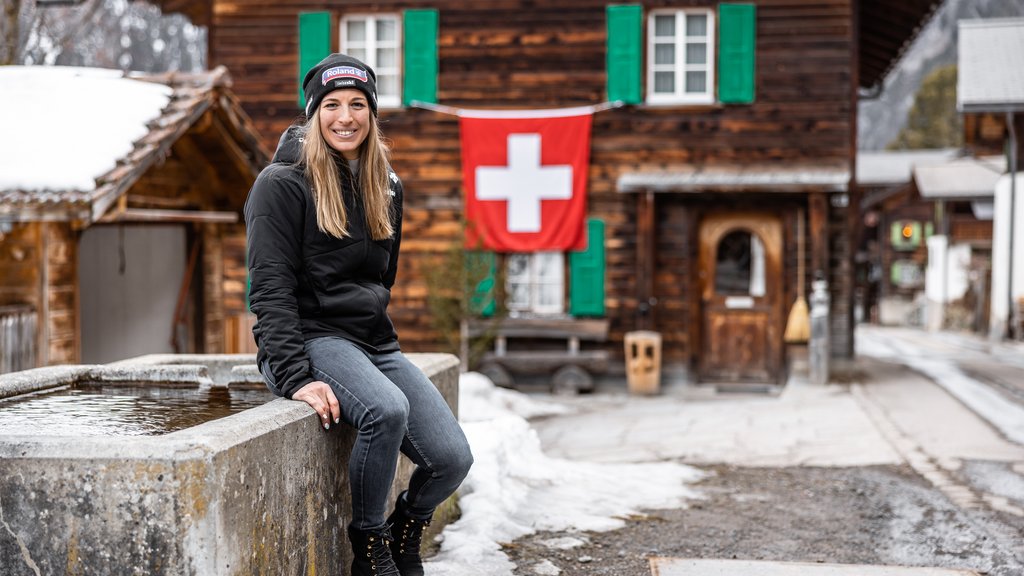
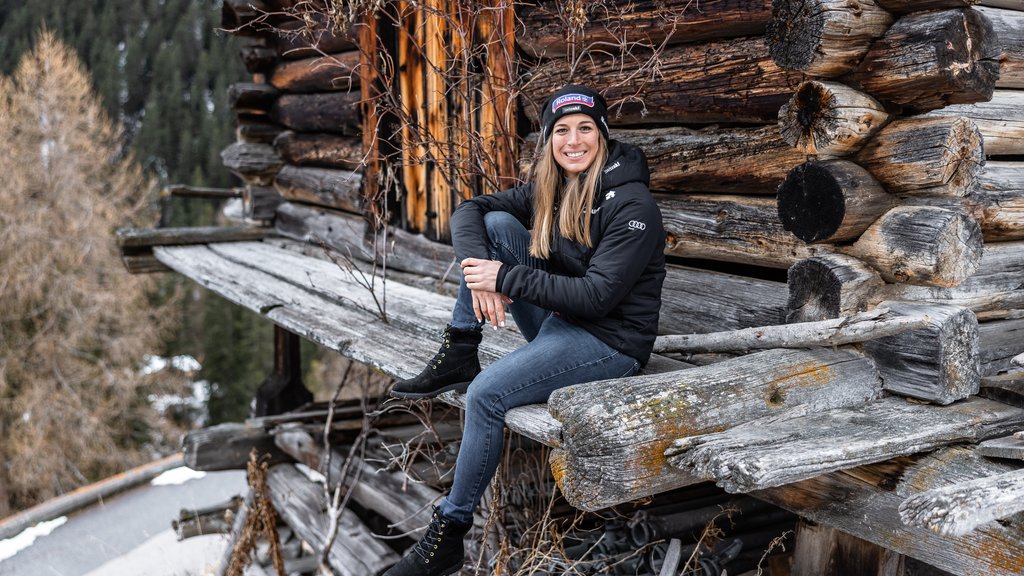
An unforgettable World Cup win
The path to the top of the world of sport takes time. It was in February 2023 at the Ski World Championships in Méribel, France, that everything took off. Shortly before, Jasmine made a few changes: she switched up her equipment and took a new approach to mental training. She also spent the summer before the Ski World Cup at home rather than overseas. ‘I worked hard not to get mentally stuck on the one turn that didn’t work,’ says Flury. With great success: she’s the first ever World Cup winner from Grisons, and the first gold medal winner from the canton in the downhill category. She shares this moment with her best friend Corinne Suter, who won bronze in Méribel. Her next big sporting goal is the Winter Olympics in Cortina d’Ampezzo and Milan 2026, as she reveals in the brief interview below. Then it’s time to tackle the Tofana-Schuss, one of her favourite courses, at 130 kilometres per hour. The skis will scrape over the icy spots, which means it’s that time again – she mustn’t put a foot wrong. Holding the line and pushing to the limit – without hesitation or fear.
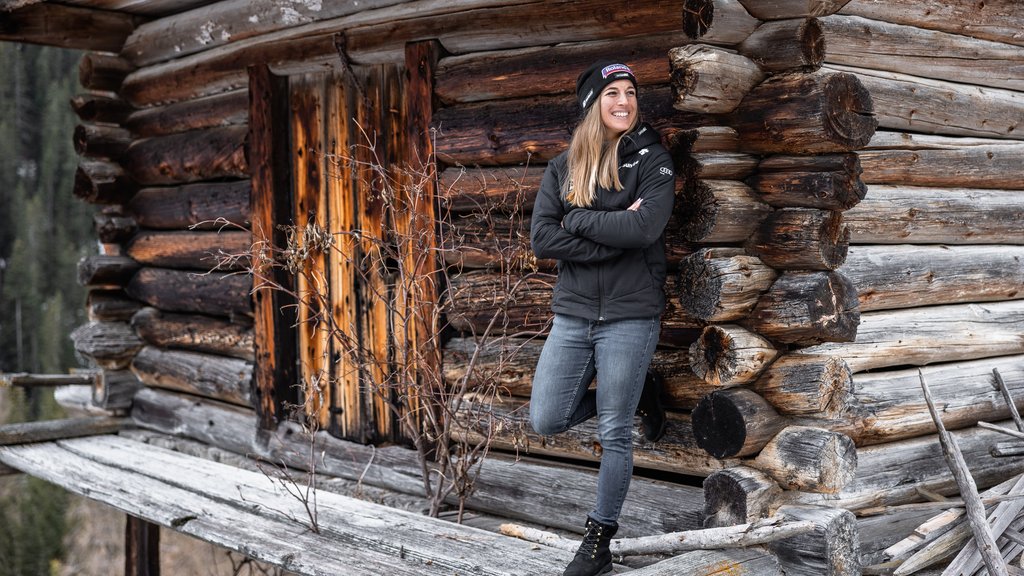
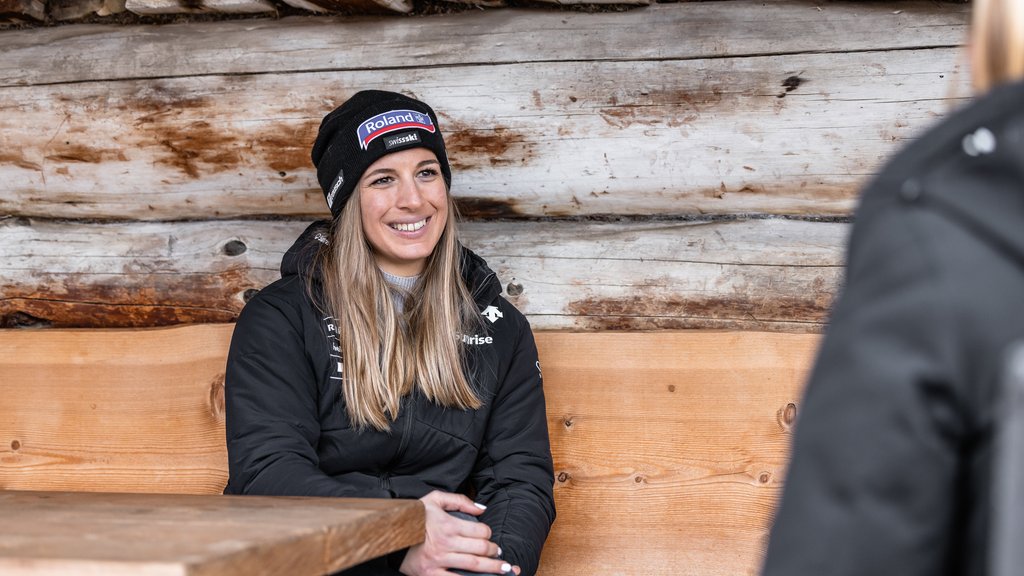
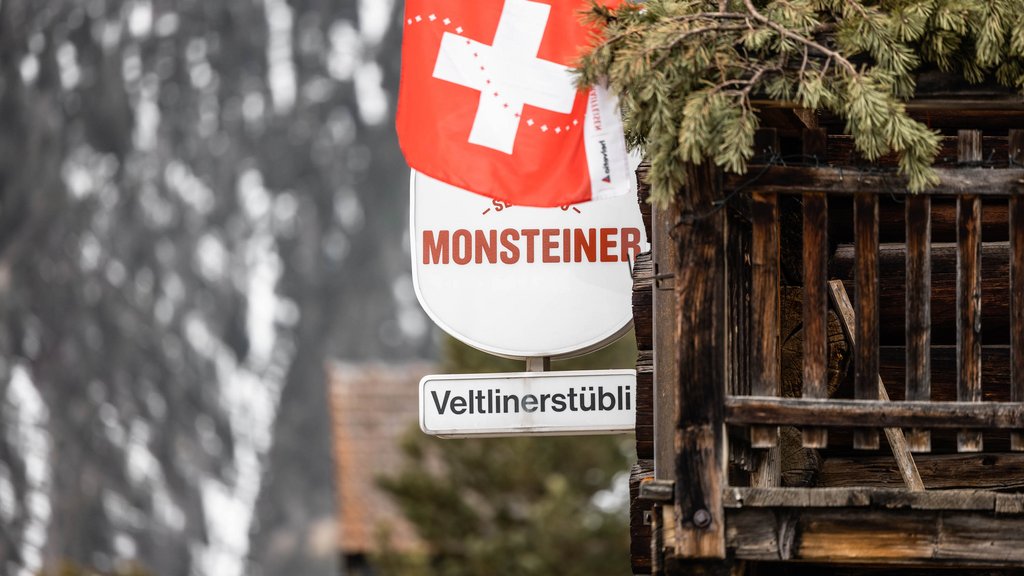
‘I recharge for the World Cup season in Davos Klosters’
What was going through your head during the awards ceremony in 2023 after you won gold for downhill in the World Championships in Méribel?
The time at the finish line was an emotional rollercoaster ride. At first I was in the lead with start number two and waited a long time at the finish line until my victory was certain. After that there was a lot going on until the awards ceremony. What I’m sure to remember is the moment I was allowed to close my eyes and sing the Swiss national anthem. It was unforgettable.
You’ve been the Destination Davos Klosters ski ambassador for over two years. What role does the resort play when you’re preparing for major occasions or World Cup races?
Before, in summer, we had lots of training camps in different places all over the world. This year I’ve been travelling so much with the World Cup races that this summer I made a complete about-turn and came home to recharge my batteries and regain my strength for the first time. I was able to prepare for the new season in peace, nature and familiar surroundings. That was wonderful. Even in tough times in my career, Davos Monstein was always a place that brought me great strength.
And there have been tough times. In one season, an injury ruled you out of every single race. How do you stay motivated after such setbacks?
Setbacks are part of any career in elite sport. Most athletes have to deal with almost more setbacks than successes. Over time, I’ve learnt to handle them more positively and take pleasure in small steps forward. As long as you still have the passion for the sport, you’ll always find the motivation to do what you love best.
After completing your compulsory education in Davos, you focused all your efforts on becoming a top athlete. Looking back, is there anything you would do differently?
No. Everything in life that didn’t go so well, including mistakes, have made me the person I am today. I’m very proud of my path. Of course, sometimes there were doubts. Particularly when I got injured or things weren’t going as well. But today, I’m certain that I would go all in all over again: if I do something, I want to do it 100% right. It’s great that this plan worked.
In addition to the World Cup races, are the 2026 Olympic Games in Italy your next big sporting goal?
Yes, if I stay fit and I still have my passion for skiing. I’m pleased that the Olympic Games and competitions are taking place here in Europe again. Of course, the biggest goal is to succeed at these Games.
Set up a contact for our phone number
+41 81 415 21 88
Write your question directly via WhatsApp.
Please note: we respond to your questions during opening hours of the tourist office .


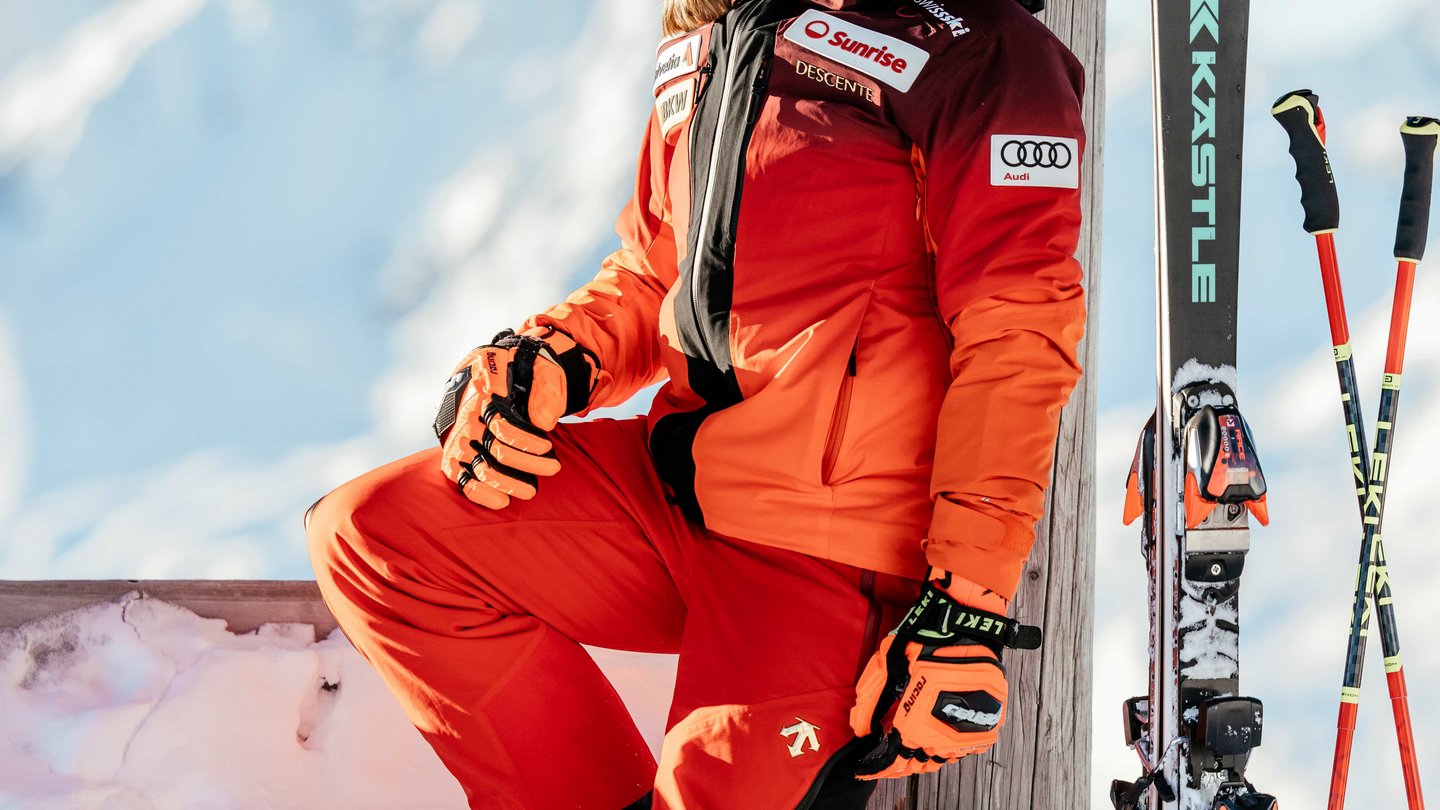
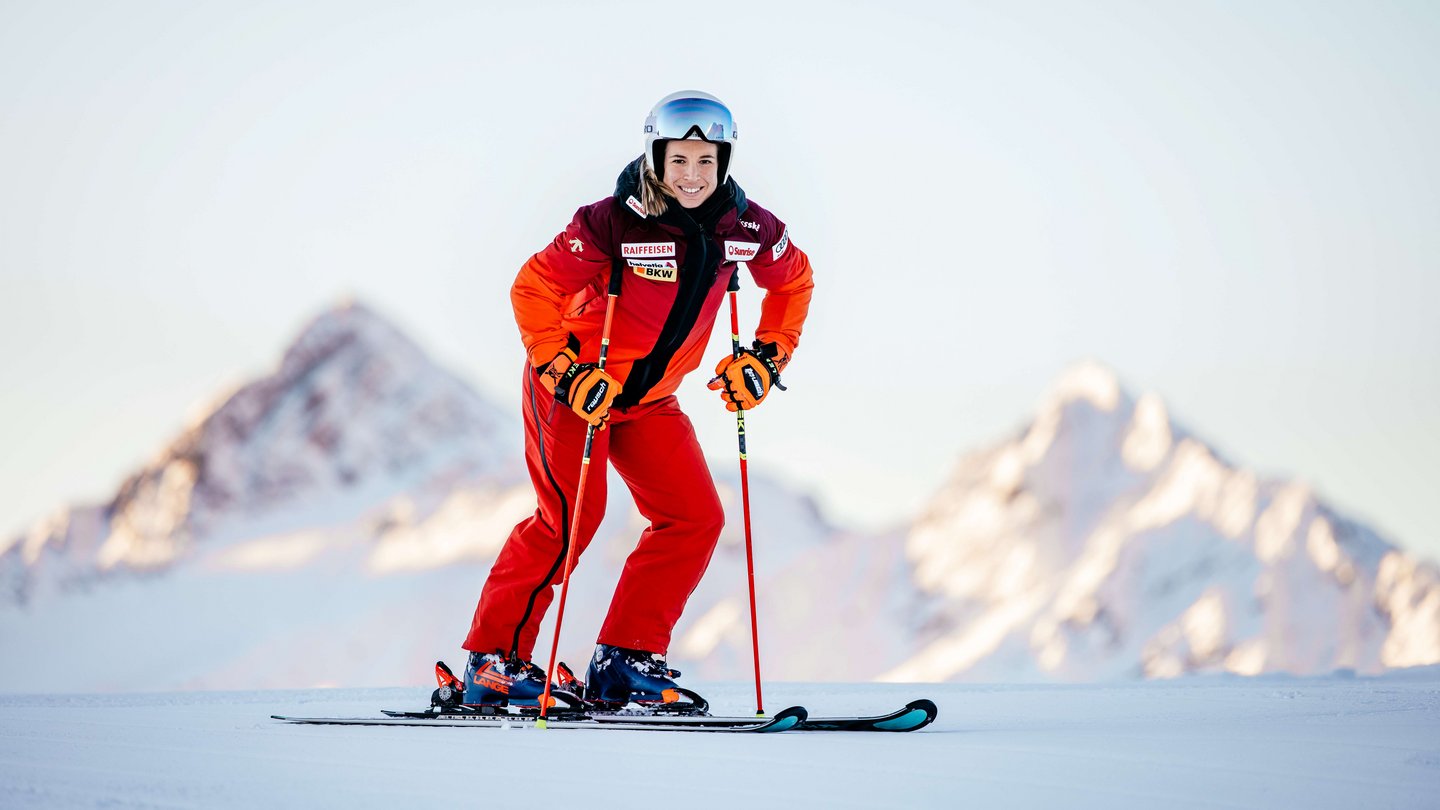
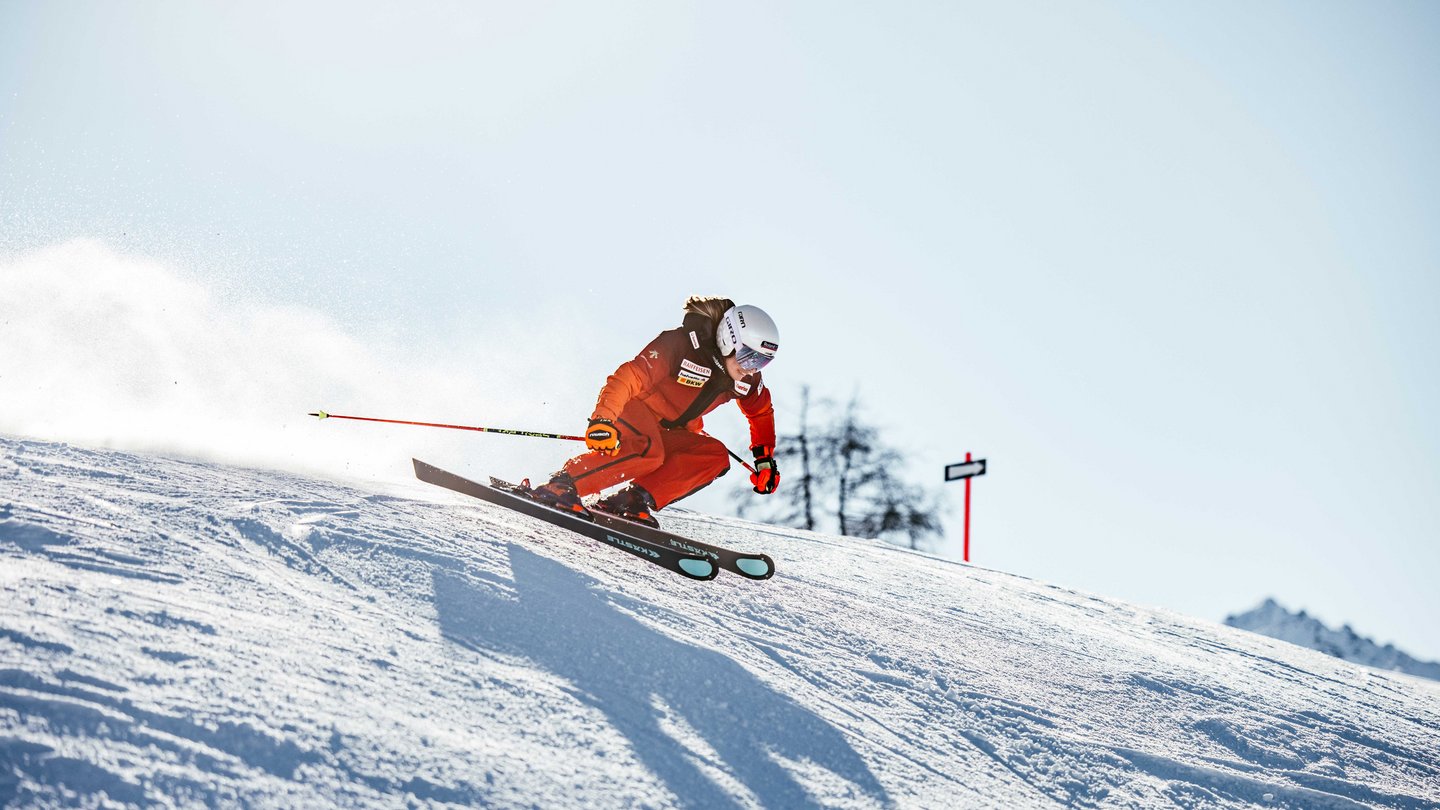
![[Translate to English:]](/fileadmin/_processed_/1/7/csm_Monstein_Davos_Winter_Schnee_968adc78f2.jpg)

